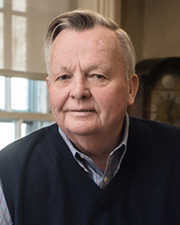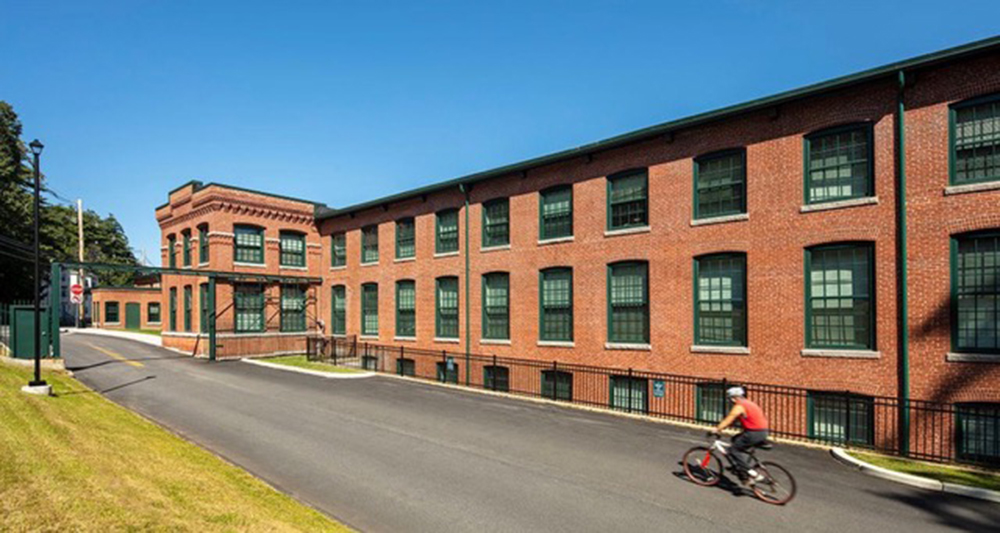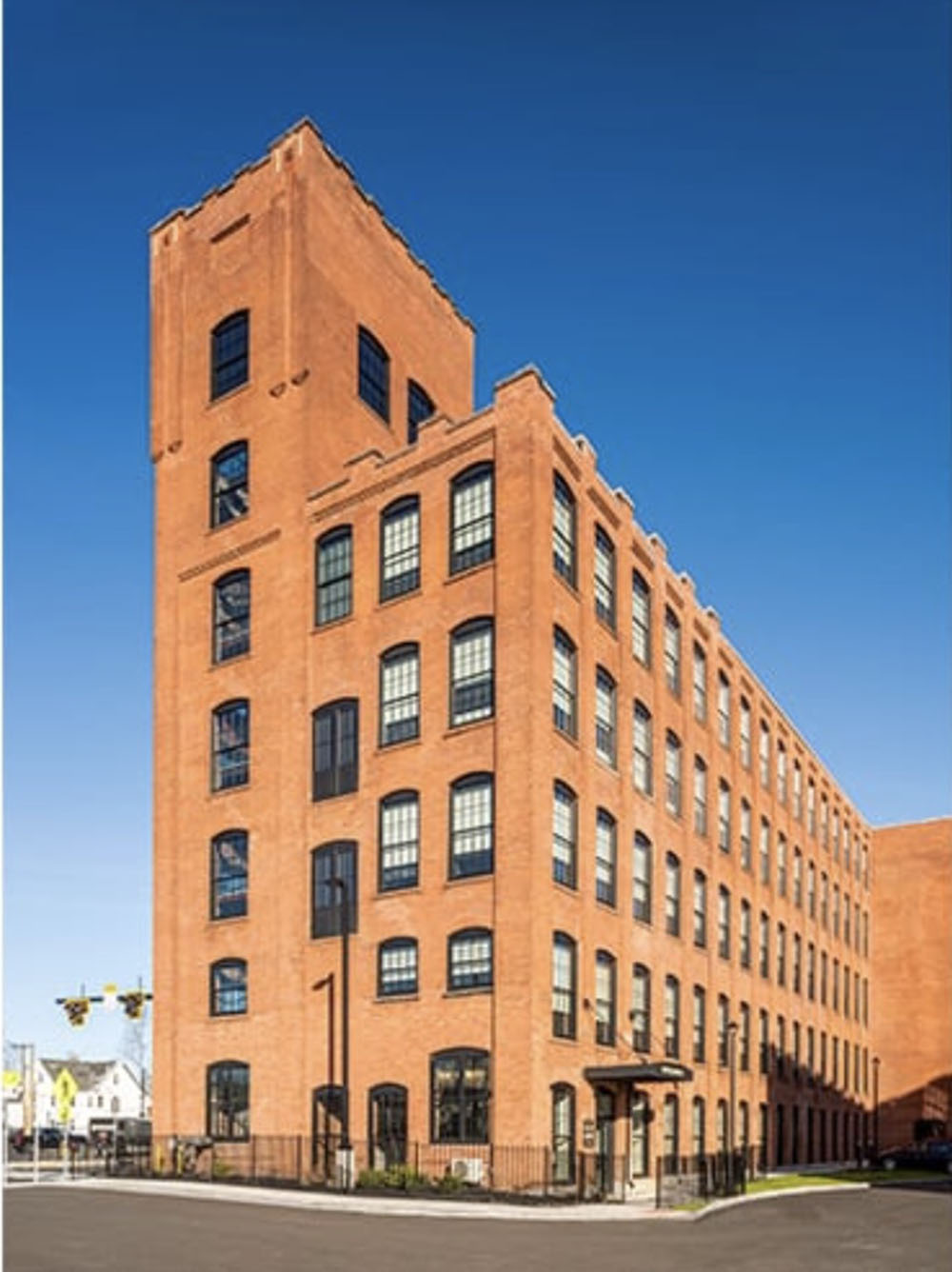
Boston, MA The Architectural Team’s (TAT) founder, Robert Verrier, FAIA, NCARB, has been posthumously recognized with Preservation Massachusetts’ highest honor, the Paul & Niki Tsongas Award, given to people that have displayed the highest level of commitment to historic preservation.
Across half a century from his founding of TAT in 1971 until his death in 2021, Verrier played a pioneering role in bringing the value of historic preservation and adaptive reuse into the public consciousness, saving and reinventing dozens of mill buildings, schools, and wharf structures for new life as housing and other community assets. As an architectural visionary, Verrier’s professional commitment to this effort captured national attention and inspired countless emerging practitioners. His portfolio features a 25-year effort to preserve and rehabilitate a former chocolate factory complex in Dorchester, igniting a community revival. Additional notable projects include transforming an abandoned hospital into senior housing and repurposing a landmark 1800s cotton mill into a mixed-use complex that houses offices, apartments, and a National Park Museum. Designing over 100 projects and adaptations, Verrier also led the rehabilitation of TAT’s offices headquartered in an 1840s Naval commandant’s house on Admiral’s Hill along Chelsea’s waterfront.
Other TAT project honors include, Southbridge Mills and Mason Square Apartments II at Indian Motorcycle, both winners of the 2024 Mayor Thomas M. Menino Legacy Award by Preservation Massachusetts.

Southbridge Mills is a $23 million historic adaptation of a 19th century, three-story brick mill into a 48-unit affordable multifamily community. Located on the former campus of the American Optical Company, the 70,000 s/f structure, built in 1888, is the oldest building within the Southbridge Innovation Center complex. After being shuttered in 1979, the decaying mill required extensive interior repair due to water damage and neglect, including replacement of the timber decking and beams in the central core of the structure, brick and mortar restoration, and exterior waterproofing. Sited in the floodplain adjacent to the Quinebaug River, the design team raised the mill’s first floor by one foot to create a resilient structure. Listed on the National Register of Historic Places, the building’s LEED-certifiable restoration features energy-efficient windows, insulated and air-sealed bedrooms, and a high-efficiency heating system. The interior program highlights the mill’s character-defining features and historic materials, including a resident lobby, a light-filled resident lounge and workspace, and an accessible community kitchenette.

Located in the McKnight National Historic District of Springfield, Mass., Mason Square Apartments II at Indian Motorcycle is the historic adaptive reuse of an existing 55,000 s/f factory building and adjacent 15,000 s/f firehouse into a 45-unit mixed-use office and multifamily community. Complicating the restoration process, the design team was tasked with eradicating oil that saturated the heavy timber construction and brick masonry from the production of motorcycles. The team’s sensitive design approach preserves the historic details of the factory, highlighting the different time periods during which it was initially constructed and later expanded. The project includes the historic rehabilitation and adaptive reuse of the neighboring firehouse into 15 additional units and the design of an onsite Indian Motorcycle Museum commemorating the building’s storied history.
TAT’s current leadership builds on Verrier’s legacy, and the firm’s experts are valuable sources on the social and economic benefits of historic adaptive reuse.
Known for longstanding collaborations with public agencies, nonprofits, housing authorities, and top national developers, TAT’s leaders can also describe the key considerations shaping these initiatives today. These include innovative public-private partnerships, crucial tax credit and incentive programs, and new ideas for boosting sustainability and energy efficiency in converted industrial and commercial buildings, as well as enhancing flood resiliency in vulnerable historic structures.
Details on TAT’s upcoming adaptive reuse projects include:
The Stone Mill, an all-electric, low-carbon transformation of a landmarked industrial complex into 86 ultra-efficient mixed-income apartments nearing Passive House levels of building performance.
ThirtyOne Elm, a 74-unit mixed-income, mixed-use hub within a sensitively restored former commercial building that is accelerating a revitalization of Springfield, Massachusetts’ Court Square neighborhood.
Appleton Mill, a senior housing complex with 88 mixed-income apartments across three restored former textile mill buildings in Holyoke, Massachusetts, that is currently in construction.
.png)






